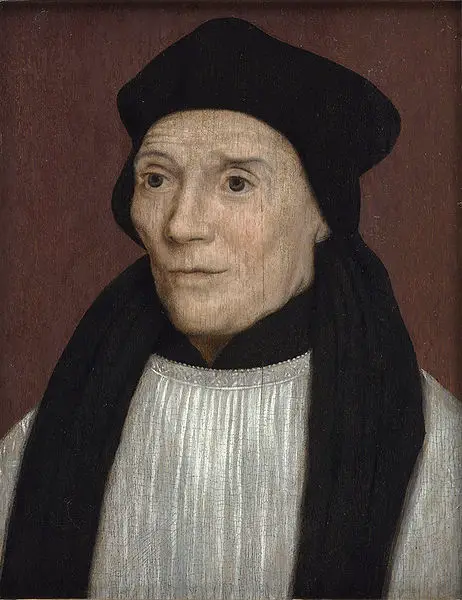Poet William Neville was born on 15th July 1497 and was the second son of Richard Neville, 2nd Baron Latimer, and Anne Stafford, daughter of Humphrey Stafford. His older brother was John Neville, 3rd Baron Latimer, who had Catherine Parr as his third wife.
Not much is known about the life of William Neville, but what we do know is rather interesting and involves treason and dark magic.
It is believed that when he was young, William served under Cardinal Wolsey and would have been provided with the education typically given to the son of a baron. Although we know very little more about his early years, we do know that from 1524 he served as a commissioner of the peace for Worcestershire.
Sometime before April 1529, William Neville married Elizabeth Greville, daughter of Sir Giles Greville, and through this marriage, he acquired significant lands in Gloucestershire. William also owned land in Worcestershire, which would have made him an important and wealthy landowner. William and Elizabeth had three children together, one son Richard and two daughters. Although wealthy and the son of a baron, that did not keep William out of legal trouble. In the 1520s and 1530s, the lands bequeathed to him by his father-in-law became the subject of litigation, resulting in a financial struggle for the family.
During his life, William wrote a poetical work called ‘The Castell of Pleasure ’, an allegorical work in which a dreamer, Desire, is led by Morpheus to a castle. Inside the castle, the dreamer encounters Beauty and other allegorical personages. Upon waking, he laments the changeability of human nature and human affairs. The work was published in 1518, and copies still survive today.
In 1532, William was accused of treason by Thomas Wood. Wood alleged that William had prophesied the death of King Henry VIII, an offence punishable by death. Wood also claimed that William had prophesied that he would become the next Earl of Warwick and that William dabbled in dark magic, wishing to make himself a cloak of invisibility out of horse bones, skin, and chalk. William’s former chaplain, Edward Legh, corroborated these stories, accusing him of similar acts in 1533. These accusations are rather strange, as, given the little we know about William Neville’s life, they appear to have come from nowhere. It is unclear, therefore, what the motives of Thomas Wood and Edward Legh were, and this remains a bit of a mystery.
Due to the litigation regarding his lands, William Neville was incapable of appealing his case, writing to Thomas Crowell that he was impoverished and unable to “sue by course of law for redress of wrongs.” (LP Henry VIII, 7, no.1649). This appears to be the last we hear of William Neville, and from this letter onwards, he seems to disappear from the historical records. Sadly, we do not know the fate of William Neville, but by 1545, William’s estates had passed on to his son Richard.
by Georgia Whitehead
Georgia has just finished her masters in Classics at the University of Edinburgh. Academically, Georgia is interested in early Christianity, with her master's thesis focusing on "The Male Gaze and Self-Representation in Female Christian Narratives". In addition to her interest in ancient history, she has always been an avid lover of the Tudor era, drawn to the magnificence of the Tudor courts and the larger than life characters. She is particularly interested in The Reformation, Christianity and the shifting sands of ecclesiastical politics in this period and also has a keen interest in the lives of Tudor women. It is Georgia's ambition to become a writer, perhaps publishing her own Tudor novel one day.
Georgia also runs a history blog and instagram page called Historia Mundis.
Bibliography
- Elton, Geoffrey R. (1972). Policy and Police; The Enforcement of the Reformation in the Age of Thomas Cromwell. Cambridge: Cambridge University Press. pp. 49–57.
- Edwards, A.S.G. (2004). Neville, William (b. 1497, d. in or before 1545). Oxford Dictionary of National Biography.
- Ford, L.L. (2004). Neville, Richard, second Baron Latimer (c.1467–1530). Oxford Dictionary of National Biography.




Leave a Reply